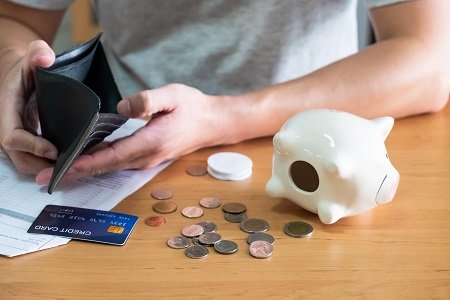How A Recession Can Affect Your Car Loan Interest Rate


Talks and rumors about a recession will always be alarming. The mere mention of it will make many people think about how it will affect their jobs, mortgage payments, and other financial matters.
Another thing that has been affected by the economic slowdown is our cars, especially the ones that have not yet come out of the payment system. Undoubtedly, the recession can be a double-edged sword for financing your car, from interest rates to refinancing.
But how will it really affect your car?
What is a Recession?
A recession occurs when the economy shrinks and declines for at least half of the year. Many things can cause a recession, but one fact is certain that it can have a negative impact on the family.
Usually, at least two fiscal periods are started in a row when the economy is hit by a reduced gross domestic product (GDP). So, what does it mean for ordinary people? This can lead to reduced working hours and even unemployment for some people.
Worries about the economy will lead to households spending less and saving more, which will lower their incomes. This can reduce the profitability of small businesses and large corporations, causing mass layoffs and unemployment.
It’s a vicious cycle that’s hard to break. Recessions, although a normal part of the natural growth and contraction of the economy, can greatly increase the stress on domestic finances in the absence of adequate planning. Job losses, reduced incomes, and rising costs during such periods often force households to cut back on spending, further reducing economic activity and deepening recessions. If a recession continues long enough without effective intervention, it may turn into a depression.
Recession and depression
A recession differs from a depression in several ways. As mentioned, the recession is caused by two consecutive financial periods with negative GDP growth, indicating a short-term decline in economic activity. Depression, on the other hand, is more severe and lasts longer. In simple terms, a depression is an economic downturn multiplied by ten or more.
A complete depression means that there will be mass layoffs and high levels of unemployment in various sectors of the economy. Unlike a recession, which lasts less than a year, a depression can last for years, leaving people in dire financial situations.
Recession and Interest Rates
Of course, when we think about loans, including auto loans, one of the first things that comes to mind is interest rates. If signs of an economic downturn appear, the government and central banks will take steps to fix things before they get out of control. They may create and implement policies that promote economic growth, including changing interest rates to keep the economy strong.
One thing to note is that interest rates tend to rise just before a recession. This increase helps to reduce inflation and reduce consumer spending. If market demand exceeds the supply of goods and services, this will help balance consumer spending habits.
On the other hand, during a recession, interest rates tend to fall because the government wants more people to spend their money instead of saving, thus encouraging economic growth.
What the Recession Did to Your Car Financing
A recession can mean a few things to your car. If you plan to finance a car just before the recession, you will get expensive interest rates. For this reason, you should budget and plan, as it will be difficult to get a loan at this time.
Another thing that happens during a recession is repossession. Car repo rates tend to rise during recessions due to rising unemployment. Fortunately, many agencies offer services such as financial assistance for car repossession if you are unlucky enough to have this happen to you.
One way the recession will affect your car financing is by affecting its value. Because families are tightening their budgets, they will be more reluctant to buy expensive things, including cars. This means that if you plan to sell your car during a recession, it will be a big challenge, and if you wish to sell it quickly, you may be forced to lower its value.
And there is one thing to consider: car parts. A recession can greatly affect the production of goods, including the parts your car may need. This is because of how materials and product movement are often done in many countries. Because of this, the production and distribution of car parts will be greatly reduced.
Final Words
The recession is a scary topic for many people, and yes, that includes car owners. If you were planning to finance a new car just before the recession, you may have a tough time due to rising interest rates. On the other hand, if you decide to sell your car during a recession instead, you may be forced to lower the value of your car in order to sell it.
Although a recession can be a huge setback for you and your car, planning and being smart about it will prevent some of your recession worries.
Article written by Tiffany Wagner, tiffanywagtw@gmail.com
Source link
.png?w=390&resize=390,220&ssl=1)


